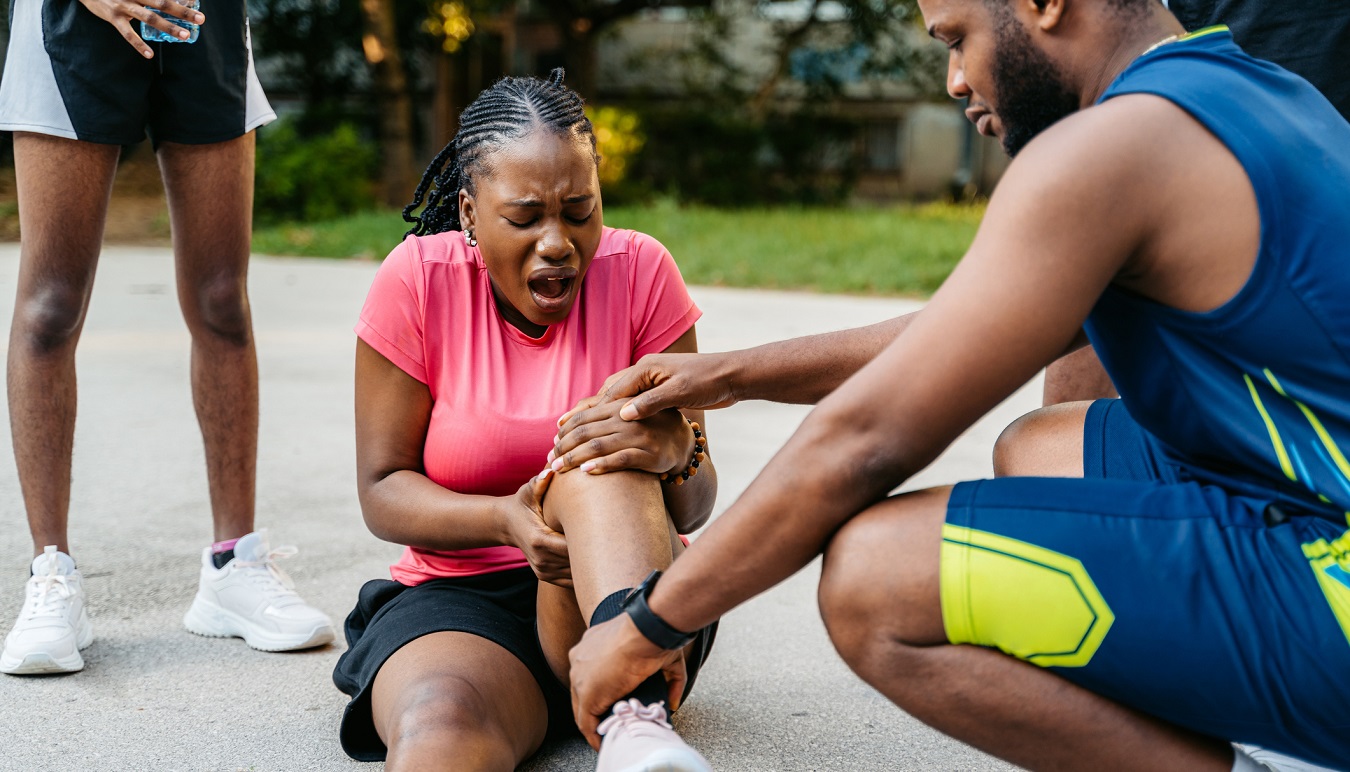Strengthening your core after 40 is essential for improving your stability, balance and preventing...
Read More
Sports injuries can be difficult to recover from, especially if you’re a very active athlete. Not only can an injury sideline you from your sport, but you may also have trouble with daily activities, work and more. Here’s how a sports medicine physical therapist can help.
While each person’s healing process will look different, there are a few stages that physical therapists follow to optimize recovery for every patient. These stages of rehabilitation include:
1. Rest and Protect
2. Mobility
3. Strength and Endurance
4. Coordination
5. Sport-specific Movement
“These stages allow us to focus on healing the body in an effective and functional way,” said Meryl Willingmyre, a physical therapist at Inspira Rehab Care. “Trying to quickly get back to movement after an injury can lead to repeat injuries and further complications. But starting slow and building up strength can help you get back to your sport stronger and less prone to injury than you were before.”
First and foremost, your physical therapist will guide you through a regimen to help you manage pain, rest and protect your injury. “Resting doesn’t necessarily mean staying in bed all day,” said Willingmyre. “It’s actually beneficial to introduce movement into your body while recovering from an injury.”
This type of rest may include gentler movements and exercises that take the pressure off of your injured body part. This may include exercises like walking on an anti-gravity treadmill or in a pool instead of walking on land. Your physical therapist can also help with modifications to daily activities that may put your injury under pressure—like heavy lifting or long periods of standing.
Your muscular strength depends on the flexibility of your muscles, which is why the next step to recovery is working on your range of motion. “After an injury, you’ll likely feel stiffness or limited range of motion in the affected area,” said Willingmyre. “So, this stage focuses on stretching, flexibility training and mobility exercises.”
At this stage, you won’t be lifting heavy weights or resuming your normal training regimen, but rather doing bodyweight exercises at home. Exercises that focus on mobility include thoracic spine rotations, wall angels, hip lifts and walking hip openers.
Once you’re feeling minimal pain and starting to get your range of motion back, it’s time to start building your strength and stamina. Your physical therapist will likely give you bodyweight exercises to start, and begin adding weight when your body is ready. They can also use tools like blood flow restriction therapy (BFRT) to allow you to make bigger gains using lighter weights.
“During this phase, we focus on load progression and improving endurance,” said Daniel Flaherty, a physical therapist at Inspira Rehab Care. “When you’re working out with your physical therapist, we will pay attention to your form and breath patterns. If your form starts to break down or your breath starts to hitch while you’re exercising, it may indicate that we’ve done too much too soon.”
Sports injuries have a tendency to affect our proprioception, also known as your body’s ability to sense movement and location without visual clues. “As an athlete, you know that coordination is important to safely practicing your sport,” said Flaherty. “So, we want to focus on your neuromuscular control with exercises like balancing on one leg in various positions.”
Once you’ve regained your range of motion, strength, stamina and neuromuscular control, you can focus on retraining your sport-specific movements. This stage helps you use your regained strength and mobility to perform complex movements like swinging, catching, pivoting and more.
“Most sport-specific movements require coordinating different muscle groups, which is why we focus on this part last,” said Flaherty. “These movements are also often what caused the injury in the first place, so incorporating the movement pattern into physical therapy can prevent it from happening again.”
You may have a long road to recovery, but every step you take toward rehabilitation brings you closer to getting back in the game.
Inspira’s rehabilitation specialists develop patient-centered plans to help restore health and improve quality of life. Learn more about Inspira's Sports Rehabilitation Services or call at (856) 641-8000 ext. SPORT to book an appointment

Strengthening your core after 40 is essential for improving your stability, balance and preventing...
Read More
Are you training for your next race? Here’s how you can work to build endurance and avoid injury...
Read More
Exercise is vital to good health, but sports and other physical activities can cause injury. Here’s...
Read More